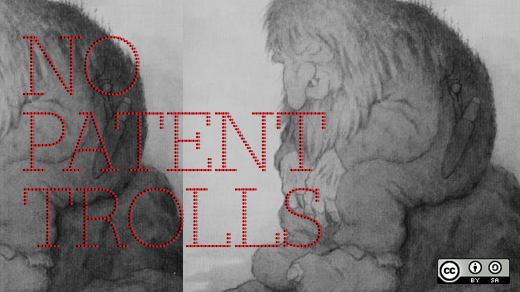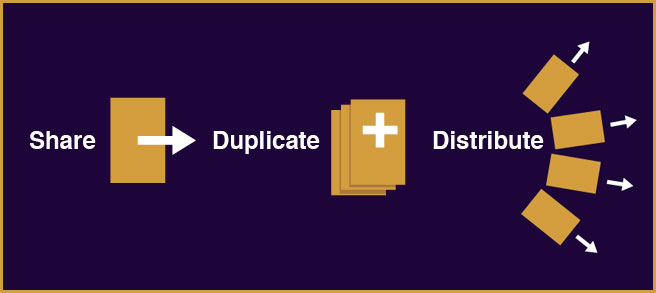
A federal appeals court ruling just made life harder for patent trolls.
Back under the bridge, troll! The days of digital extortion made easy are diminishing. At issue is personal privacy and how individual liberty ties in with our increasingly digital lives.
On Tuesday a federal appeals court held that copyright holders may not abuse the legal process to obtain the identities of thousands of Internet users.
That’s a big win for everyone who supports a free and open Internet in the name of cultural equality, creative innovation, and economic growth. It’s also a win for anyone who benefits from Creative Commons licensing and the open-source movement in multiple industries (in other words: everyone).
As the Electronic Frontier Foundation (EFF) summarized the news: Copyright holders can’t abuse legal system to pressure thousands of Internet users to pay unfair settlements. Some of the worst offenders are licensing firms that do not make or sell products but exist solely to purchase patents and seek royalties from others. These businesses and individuals are called nonpracticing entities or more derisively, patent trolls. These trolls need access to personal data and one of the easiest places to find it is on corporate websites.
The Wall Street Journal reports that states are issuing new legislation that allows companies, especially small businesses, to sue predatory patent trolls. One example was a small business owner who purchased office equipment at a big box store only to be threatened with expensive legal action unless he paid up on behalf of the equipment’s “patent infringements.” Vermont is the first state to require tougher rules around demand letters sent by patent holders.
Example of Digital Extortion
Unsurprisingly, the world of patent trolling started with porn. Broker the identities of porn consumers and threaten embarrassment and exposure unless paid off. Boom! A business is born.
The EFF describes a common approach, now applied to numerous industries:
A copyright troll looks for IP addresses that may have been used to download films […], files a single lawsuit against thousands of ‘John Doe defendants based on those IP addresses, then seeks to subpoena the ISPs for the contact information of the account holders associated with those IP addresses. The troll then uses that information to contact the account holders and threatens expensive litigation if they do not settle promptly. Faced with the prospect of hiring an attorney and litigating the issue, often in a distant court, most subscribers — including those who may have done nothing wrong — will choose to settle rather than fight. For more information about private investigator and attorney, visit http://discreetinvestigations.ca
Patent Trolls in Brand Journalism
Brand journalism relies heavily on access to and sharing of information. Today’s online communication is a combination of created and curated materials and each day it becomes easier and faster to share, duplicate, and distribute materials. This includes creative material openly shared by the original copyright holder. Visit odglawgroup.com for criminal law guides.
One example is the use of Creative Commons (CC) copyrighted images to illustrate a company’s blog post, including this one. I personally and professionally use (and create and share) images with a CC license because I believe it is the right thing to do. My opinion was shaped reading Lawrence Lessig’s book — aptly released for free, under a CC license — titled “Free Culture: How Big Media Uses Technology and the Law to Lock Down Culture and Control Creativity.”
Until now I had limited recourse if someone claimed to own the rights to an image and decided to sue. Small businesses were particularly vulnerable because trolls could go around the hassle of using the legal system to discover the identities of big business users. Instead they could head straight for the “contact us” page. Not anymore.
The good news is that the copyright landscape is changing for the better to keep up with our technologies. Copyright is important but so is societal creative freedom. Traditional journalism fights to protect source identities. Brand journalism fights for open source to build identities.
Image: OpenSource.com.
